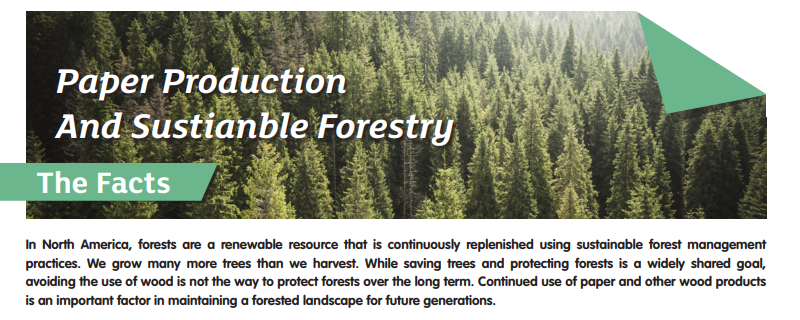To learn more about sustainability efforts within the printing and packaging industry, the resources listed below can give you a good start.

The Sustainable Green Printing Partnership (SGP)
SGP’s vision to create a true circular economy within the print supply chain. SGP is the print industry’s catalyst to increase business opportunities among brands committed to a sustainable supply chain and grow profits by reducing resource consumption and waste.
SGP provides print buyers with transparent, measurable assurance that SGP-certified facilities will help print buyers meet and exceed sustainability goals.
To become SGP-certified, each SGP printer must commit to:
- Reduce waste and hazardous materials
- Conserve energy
- Source sustainable materials
- Lower its carbon footprint
- Create a safer workplace
- Conform to all relevant environmental health, safety, and labor labs
- Adopt a third-party recertification audit every two years
- Undergo a third-party recertification audit every two years.
For information about SGP visit: https://sgppartnership.org/
For information about SGP certification: http://sgppartnership.org/certification/
The Sustainable Packaging Coalition
The Sustainable Packaging Coalition (SPC) is a membership-based collaborative that believes industry can make packaging more sustainable. The SPC brings together businesses, educational institutions, and government agencies to collectively broaden the understanding of packaging sustainability and develop meaningful improvements for packaging solutions.
The SPC has developed tools, applications, and services to help companies take meaningful action toward packaging sustainability.
For example, the SPC has produced a series of online courses on “The Essentials of Sustainable Packaging”
Earlier this year, they published a 59-page report: “Understanding the Role of Compostable Packaging in North America.”
More info: sustainablepackaging.org/
Two Sides North America
Two Sides North America is an independent, non-profit organization that uses a straightforward, balanced approach to tell the sustainability story of print, paper and paper-based packaging. Two Sides tackles relevant environmental issues head-on with factual, authoritative information that exposes myths and explains the industry’s true sustainability.

Member companies span the Graphic Communications and Paper-based Packaging value chain, including forestry, pulp, paper, paper-based packaging, chemicals and inks, pre-press, press, finishing, printing, publishing, envelopes and postal operations.
The goal is to gives stakeholders a solid foundation for making well-informed decisions about the use of print and paper products.
For example, Two Sides publishes fact sheets that bust myths such as:
Myth: Going Paperless Saves Forests
Fact Sheet: Paper Recovery and Recycling
Fact Sheet: Wood-Based and Alternative Fiber-Based Papers
Myth: Paper is a Wasteful Product
For more information: https://twosidesna.org/
The Sustainability Consortium (TSC)
The Sustainability Consortium (TSC) is a global non-profit organization working to transform the consumer goods industry by partnering with leading companies to define, develop, and deliver more sustainable products.
TSC translates the science of sustainability into quantifiable metrics and practical tools for buyers and suppliers to address sustainability issues in their supply chains. Their product sustainability toolkits enable product buyers to:
- Compare who leads and lags in sustainability performance
- Identify suppliers with advanced sustainability practices
- Reveal opportunities for market advantages
- Reduce supplier survey fatigue
- Identify and manage high risk suppliers
The Paper, Pulp and Forestry (PPF) Sector Working Group of the TSC investigates sustainability issues for a wide-variety of forestry products, including books, greeting cards, facial tissue, lumber, and engineered wood products. The working group includes industry experts and representatives of non-profit organizations, and academic/research institutions.
The work of the PPF Sector is being used to develop Product Sustainability Toolkits for paper-based packaging.
For more information: https://www.sustainabilityconsortium.org/
